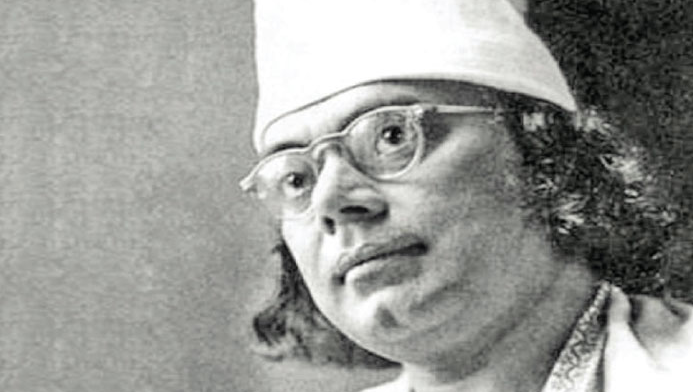Kazi Nazrul Islam is a renowned poet, writer, and musician from Bangladesh, known as the Bangladesh National Poet. He was born in 1899 in Churulia, a village in West Bengal, India. Kazi Nazrul Islam is widely recognized for his contribution to Bengali literature, particularly his rebel poetry, which had a significant impact on the Indian independence movement.
Life and Work of Kazi Nazrul Islam
Kazi Nazrul Islam received little formal education in his early years due to poverty. He began his career as a writer and journalist in Kolkata, India. He later joined the British Indian Army in 1917 but was discharged in 1920 due to illness. After his discharge, he focused on his writing career and became known for his radical views and rebellious poetry.
Kazi Nazrul Islam's work includes poems, songs, novels, essays, and an autobiography. His works reflect his thoughts on freedom, equality, and social justice. He was also known for his love poems and Islamic poetry.
Literary Works of Bangladesh National Poet
Kazi Nazrul Islam's literary works are characterized by their rebellious nature and his willingness to challenge societal norms. His poems often addressed issues such as colonialism, imperialism, and communalism. Some of his most famous works include Bidrohi, Bhangar Gaan, and Agniveena.
In addition to his poetry, Kazi Nazrul Islam wrote several novels, essays, and an autobiography. His novel, Bandhan Hara, is considered a classic in Bengali literature.
Kazi Nazrul Islam’s Influence on Bangladeshi Culture
Kazi Nazrul Islam's influence on Bangladeshi culture is significant. He played a vital role in shaping the country's music, theater, and film industry. His music and poetry inspired generations of artists and writers in Bangladesh.
Kazi Nazrul Islam's contribution to Bengali literature is immense. His works continue to inspire readers, particularly those who seek social justice and political freedom. He was also instrumental in the promotion and preservation of the Bengali language, which is now recognized as one of the official languages of Bangladesh.
Legacy of Bangladesh National Poet
Kazi Nazrul Islam's impact on Bangladeshi culture is undeniable. His contributions to literature, music, and social justice are celebrated throughout the country. He is considered one of the most important figures in Bengali literature and a symbol of Bangladeshi national identity.
Kazi Nazrul Islam has been recognized internationally as well, receiving awards such as the Padma Bhushan from the Indian government and the Ekushey Padak from the government of Bangladesh. He has also been honored posthumously with the Independence Day Award and the National Poet Award in Bangladesh.
Conclusion
Kazi Nazrul Islam's legacy is an important part of Bangladeshi culture and history. His contribution to Bengali literature, music, and social justice has inspired generations of people in Bangladesh and beyond. His words continue to resonate with readers and his influence can be seen in various forms of art and culture in the country.
FAQs
Q: What was Kazi Nazrul Islam's most famous poem?
A: Kazi Nazrul Islam's most famous poem is Bidrohi (The Rebel).
Q: What is the significance of Kazi Nazrul Islam's contribution to Bengali literature?
A: Kazi Nazrul Islam's contribution to Bengali literature is significant because he introduced a new form of poetry that challenged societal norms and addressed issues of freedom, equality, and social justice.
Q: How did Kazi Nazrul Islam influence Bangladeshi music?
A: Kazi Nazrul Islam's music and poetry influenced the development of modern Bengali music, particularly in the genres of Nazrul Geeti and patriotic songs.
Q: What is the National Poet Award in Bangladesh?
A: The National Poet Award is the highest literary honor given by the government of Bangladesh. It is awarded to individuals who have made significant contributions to Bengali literature.
Q: What is the Kazi Nazrul Islam University in Bangladesh?
A: Kazi Nazrul Islam University is a public university located in Trishal, Mymensingh, Bangladesh. It was named after Kazi Nazrul Islam to honor his contribution to Bengali literature and culture.
References
- "Kazi Nazrul Islam: The Rebel Poet of Bengal" by Ananya Dutta Gupta (published in The Diplomat)
- "Kazi Nazrul Islam: The National Poet of Bangladesh" by Sanchita Islam (published in The Culture Trip)
- "Kazi Nazrul Islam: A Biographical Sketch" by Khademul Islam (published in The Daily Star)
